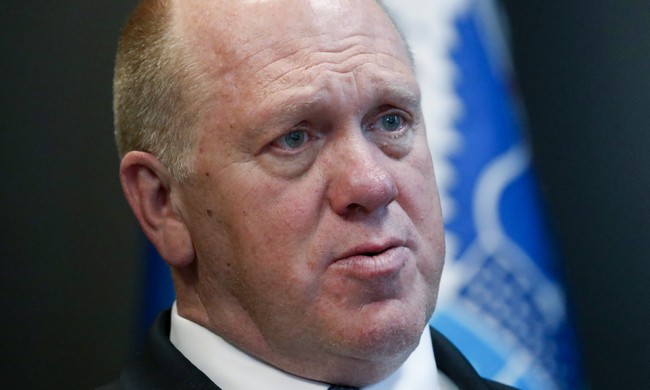Ecuador's Elections Amid Crisis: What's at Stake
Ecuadorans cast their votes in a highly polarized environment, marked by economic instability and rampant violence, presenting a crucial choice between continuing with the hardline policies of President Daniel Noboa and the opposition led by Luisa González.
Published February 10, 2025 - 00:02am
Image recovered from lavoz.com.ar
The South American nation of Ecuador is currently undergoing a significant electoral process amid heightened security concerns and economic challenges. Over 14 million citizens went to the polls to determine the leadership that will guide them through turbulent times. The elections are primarily a contest between the current president, Daniel Noboa, known for his vigorous anti-crime measures, and his principal opponent, Luisa González, who represents a left-leaning ideology with closer ties to former President Rafael Correa.
The voting process in Ecuador has not just been a political exercise but a critical juncture for a country that has recently seen its fair share of crises. Violence and crime have increased dramatically, stemming largely from drug cartel activities using Ecuadorian ports as conduits for shipping cocaine to destinations like Europe and the U.S. This has led to a spike in violence and extortion, and a consequential state of emergency has been declared multiple times by Noboa.
Under Noboa's administration, the strategy has largely revolved around deploying the military in efforts to restore security, a decision that led to the closing of land borders with neighboring countries during the election period to curb potential disruptions. Yet, this hardline approach has also resulted in human rights groups flagging concerns over potential abuses involving military actions, particularly an incident concerning the suspicious deaths of four minor individuals near a military base.
Economically, Ecuador faces significant hurdles with a sluggish economy that has deterred investors and tourists alike. The country's circumstances have worsened over years due to the fluctuating waves of narcotrafficking violence and the aftermath of the COVID-19 pandemic plaguing the livelihoods of millions of Ecuadorians. Noboa has turned to institutions like the International Monetary Fund to secure financial stability, ensuring continuing fiscal support despite escalating debt ratios.
González, Noboa's foremost challenger, offers a different vision, re-aligning with a vision for more equitable socio-economic policies while still addressing security concerns. Her aspirations for leadership come at a time when voters debate continuity versus change, deciding whether familiar governance or new directions will better rectify the existing socio-economic disparities. For her, the challenge is not only battling crime but also pulling the fragmented social structures together without the hardline military mandates that currently persist.
This electoral period is notably significant given the socio-political fragmentation within Ecuador, largely driven by in-fighting among political entities and a gap between the populace and state apparatus. It remains uncertain if Noboa can secure the outright votes necessary to maintain his policies, or if the country will undergo a second election round. Either way, the atmosphere is charged, with citizens expressing a desperate desire for reassurance, safety, and economic recovery.
Beyond this, other voices in the political mix, such as Andrea González of the center and Leonidas Iza from the indigenous movement, albeit behind in the polls, encompass the multiplicity of concerns resonating across Ecuador's diverse social fabric. The nation watches closely as electoral trends evolve, with many hoping these elections will forge new pathways toward healing and restructuring amid crises and inequality.







